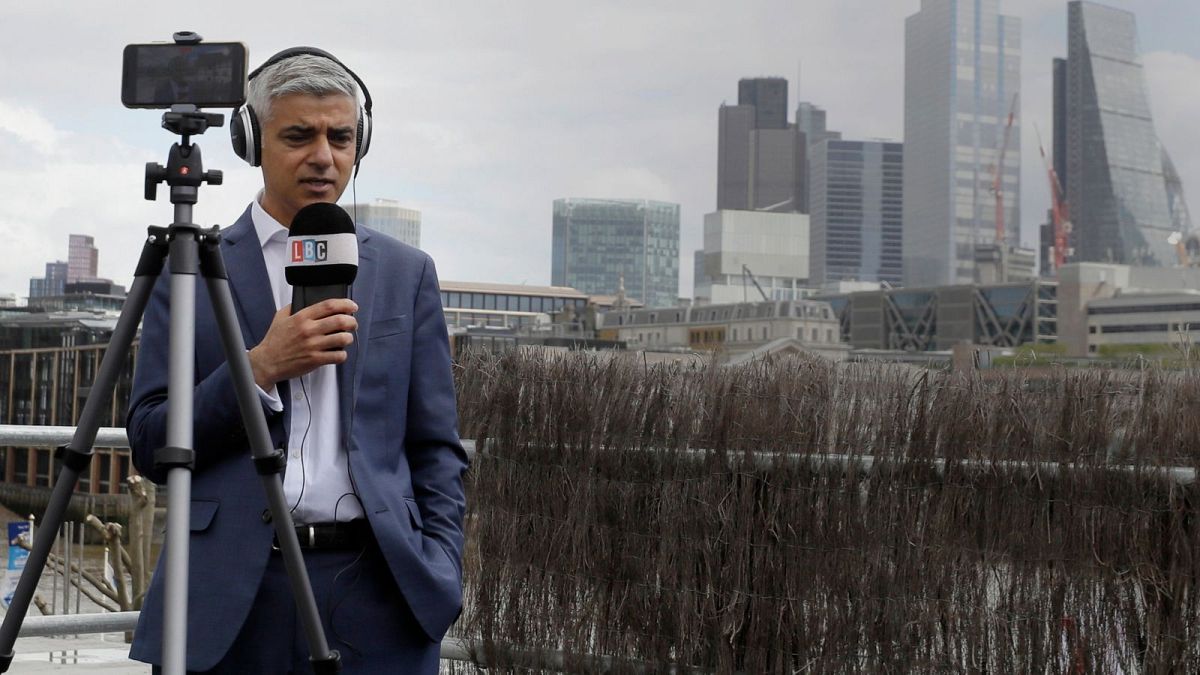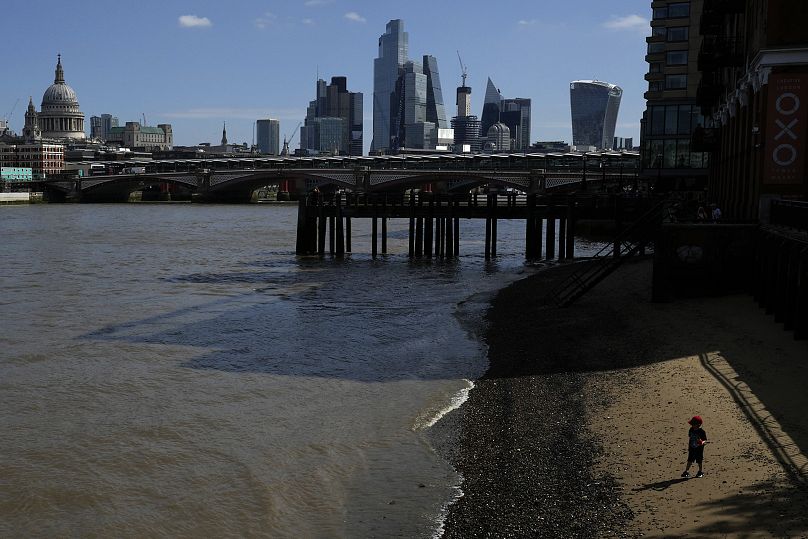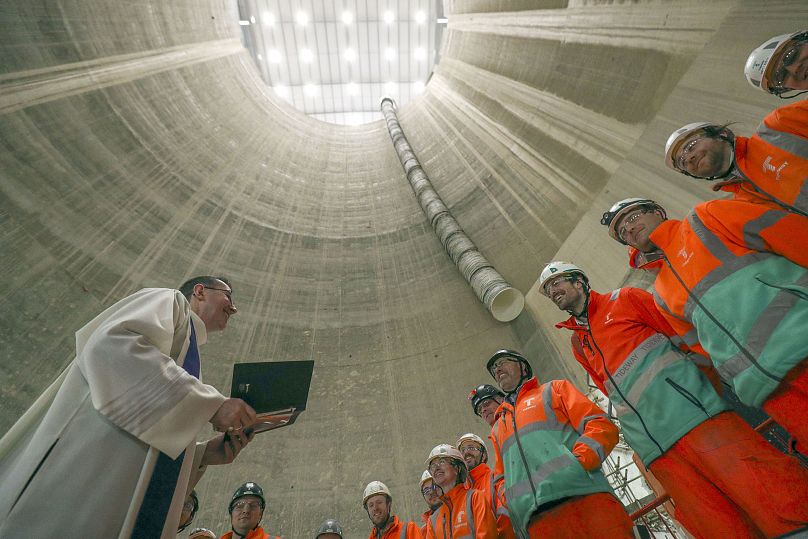A 25-kilometre super sewer is set to help - but campaigners say the scale of the challenge remains ‘absolutely massive’.
London’s mayor has vowed to make the notoriously polluted River Thames swimmable within a decade.
It’s welcome news for Londoners looking enviously across the Channel to Paris - where authorities are racing to get the Seine clean enough for Olympic swimming events this summer.
Sadiq Khan announced his “moonshot plan” to clear up the “national embarrassment” to The Sunday Times newspaper.
“We won’t do this overnight,” he said. “It will take us a few years to do - but the great thing is there’s an appetite from Londoners and campaigners.”
Here’s how London could reverse the fortunes of its beloved river.
Why is the Thames unsafe to swim in?
Though carved into Londoners’ hearts, the Thames is not the prettiest sight to behold - and reports on its contents make for worse reading.
Ahead of the Oxford and Cambridge Boat Race last month, River Action charity found that E.coli levels in the Thames were 10 times above the safe limit for swimming, set by the Environment Agency.
Previous analysis from Khan’s own City Hall office revealed an almost five-fold increase in the duration of sewage spills in London last year.
This surge in sewage pollution is blamed on mismanagement by Thames Water, the private utility company responsible for water supply and wastewater treatment in the region.
“The levels of sewage that water companies are pouring into our rivers is a scandal,” Khan - a former Labour cabinet minister - told the newspaper. “Thames Water urgently needs to up its game and get a grip of the situation.”
But the company is on the brink of collapse: swamped in over £15 billion (€17.5 billion) of debt while facing several fines and regulatory investigations linked to leaks, sewage contamination and shareholder payments.
From air to water: What’s Khan’s plan for the Thames?
“We’ve made huge progress in cleaning up London’s air, exceeding expectations. Now it’s time to clean up our waterways too,” Khan said.
Whether he’s gone too far or not far enough depends on who you ask, but there’s no doubt the mayor has made air pollution a major focus during his eight years in office.
In 2021, he oversaw the expansion of the Ultra Low Emission Zone (ULEZ), a successful measure to penalise the most polluting vehicles. And he fought off pressure for a U-turn on this policy last summer, when it became a political hot potato.
So now Khan’s got water pollution in his sights, what does he intend to do?
First things first, there’s one major intervention that has been in the works for years: the Tideway Tunnel.
This €5.8 billion long ‘super-sewer’ is due to become operational this summer; a 25-kilometre long tunnel that will connect 34 storm overflow drains and divert sewage to a treatment works in east London.
Capable of holding 600 Olympic-sized swimming pools of liquid, the Tideway Tunnel is set to reduce the amount of raw sewage dumped in the river. Though as climate change brings more intense rainfall to the UK in coming decades, experts point out even that colossal capacity could fall short.
For his part, Khan acknowledges the clean-up will require a wide cross-party effort.
“The mayoralty does not have the power or resources needed to, on its own, turn around the decline of our rivers,” he said.
“It just needs political will, and determination across the political spectrum to deliver real change. I will commit to bringing together the companies, government agencies and campaigners to work together on a 10-year plan to get London’s rivers so clean they are safe to swim in.”
That will depend on Khan being voted back in for another term in the 2 May elections, seeing off Tory opponent Susan Hall. If he wins, the mayor has pledged to invest at least £30 million (€34.8 bn) in nature - funding tree planting and rewilding, including the return of bats and water otters to the Thames, following the successful reintroduction of beavers.
The Thames’ fate will also be shaped by the UK general election later this year. With water pollution an emotive issue for the British public, parties have been writing solutions into their election manifestos.
The Labour Party, for example, has said it will put water companies dumping sewage into UK waters under special measures.
Will the Thames really be swimmable in 10 years?
It remains to be seen whether Khan will be able to follow the course of his French counterpart, Paris mayor Anne Hidalgo.
River Action CEO James Wallace has welcomed the pledge, calling it “exactly the kind of political leadership needed from all our elected leaders.”
But, he tells Euronews Green, “the scale of the challenge is absolutely massive.”
“At a minimum [it] will require Thames Water, Europe’s largest water utility, to invest tens of billions in its leaky infrastructure to stop dumping hundreds of thousands of hours of sewage into the river system.
“This environmental carnage has led to river users getting sick and wildlife dying out. However, given Thames Water is weeks away from potentially going bust, the chance of the Thames being rehabilitated very much hangs in the balance.
“Whatever happens next, people and the environment must come before profit. We cannot allow the health of our rivers to be de-prioritised any longer: neither in favour of the failing business models pursued by companies such as Thames Water that have trashed our rivers, nor by Governments and their tame regulators.”
Thames Water has been contacted for comment.





